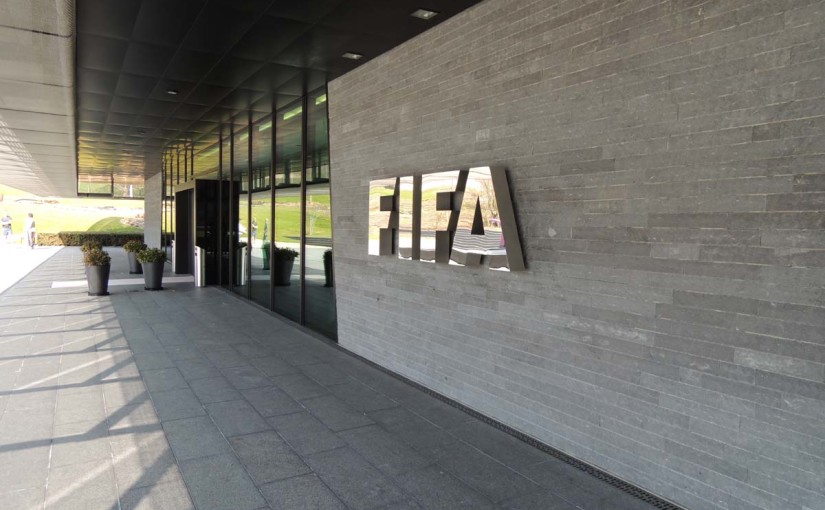By Andrew Warshaw
April 15 – FIFA must in future make human rights a priority when awarding countries the World Cup according to an independent report produced by a senior United Nations official commissioned four months ago by football’s world governing body as part of its reform programme.
With the treatment of migrant workers in Qatar under continuing scrutiny in the build-up to the 2022 World Cup, FIFA appointed Harvard professor John Ruggie, the United Nations Secretary-General’s special representative for business and human rights, to develop a global human rights strategy for the organisation going forward and tell the organisation the extent to which its operations measure up to international human rights standards.
The answer, said Ruggie, is that FIFA has a long way to go and must match words with action.
“What is required is a cultural shift that must affect everything FIFA does and how it does it,” said the 42-page report which suggests countries be stripped off the hosting rights if they fail to comply.
“FIFA should include human rights within its criteria for evaluating bids to host tournaments and should make them a substantive factor in host selection. Where FIFA is unable to reduce severe human rights impacts by using its leverage, it should consider suspending or terminating the relationship,” said the report which sets out 25 recommendations.
“FIFA has been beset by allegations about human rights abuses in connection with its events and relationships.”
“Prominent among them have been reported deaths among migrant construction workers in Qatar, which was awarded the 2022 Men’s World Cup, and the country’s kafala system that often leaves migrant workers in situations of bonded labour.”
Saying FIFA did not have “adequate systems” in place, Ruggie also specifically questioned the choice of Papua New Guinea to host the women’s Under-20 World Cup this year, saying it was “one of the world’s worst places for sexual violence against women”.
“FIFA’s global reach means that this initiative has the potential to make a difference where it matters most: in the daily lives of people,” said Ruggie.
“The foundational challenge for FIFA now is to go beyond putting words on paper and adding new administrative functions. The result must be ‘good governance’ not merely ‘good-looking governance.’ To put it in the simplest terms, FIFA, the global football enterprise, must transform itself into a modern organization.”
How far his recommendations will be implemented remains to be seen but with the emphasis on reform and transparency as a result of the ongoing corruption crisis that has snared so many of its senior figures, it seems inconceivable that FIFA will not treat it with the utmost seriousness. In response, new FIFA president Gianni Infantino, who came to power two months after Ruggie was commissioned, said in a statement that his organisation was “fully committed to respecting human rights”, but acknowledged that “challenges remain”.
After four months of research, Ruggie told The Associated Press that he was alarmed by the lack of awareness of human rights issues at FIFA “until something really smacks them in the face and then they scramble to respond.”
“As part of the bidding process, FIFA needs to do its own assessments of what the most salient human rights risks are in that particular bidding country. When it finds there are salient risks it needs to ask the host government what its plans are for mitigating those risks. If the plans for mitigating those risks are satisfactory then go ahead. If there are no plans for mitigating the risks then you move onto the next bidder.”
Two key FIFA sponsors immediately welcomed Ruggie’s report. Coca-Cola urged FIFA to “act deliberately and decisively to implement the report’s well-considered recommendations.” Adidas recommended that FIFA “implements the steps outlined in the report.”
Ruggie said FIFA needed to act sooner rather than later to show it was genuinely interested in human rights.
“My message to them would be, ‘If you don’t fix these problems, if you don’t respond to these challenges, you will see outside interference from governments and that’s the thing you hate most of all,'” Ruggie said. “So get going and fix this thing yourself before someone is forced to fix if for you.”
View the full report at http://www.hks.harvard.edu/centers/mrcbg/programs/cri/research/reports/report68
Contact the writer of this story at moc.l1734847432labto1734847432ofdlr1734847432owedi1734847432sni@w1734847432ahsra1734847432w.wer1734847432dna1734847432

